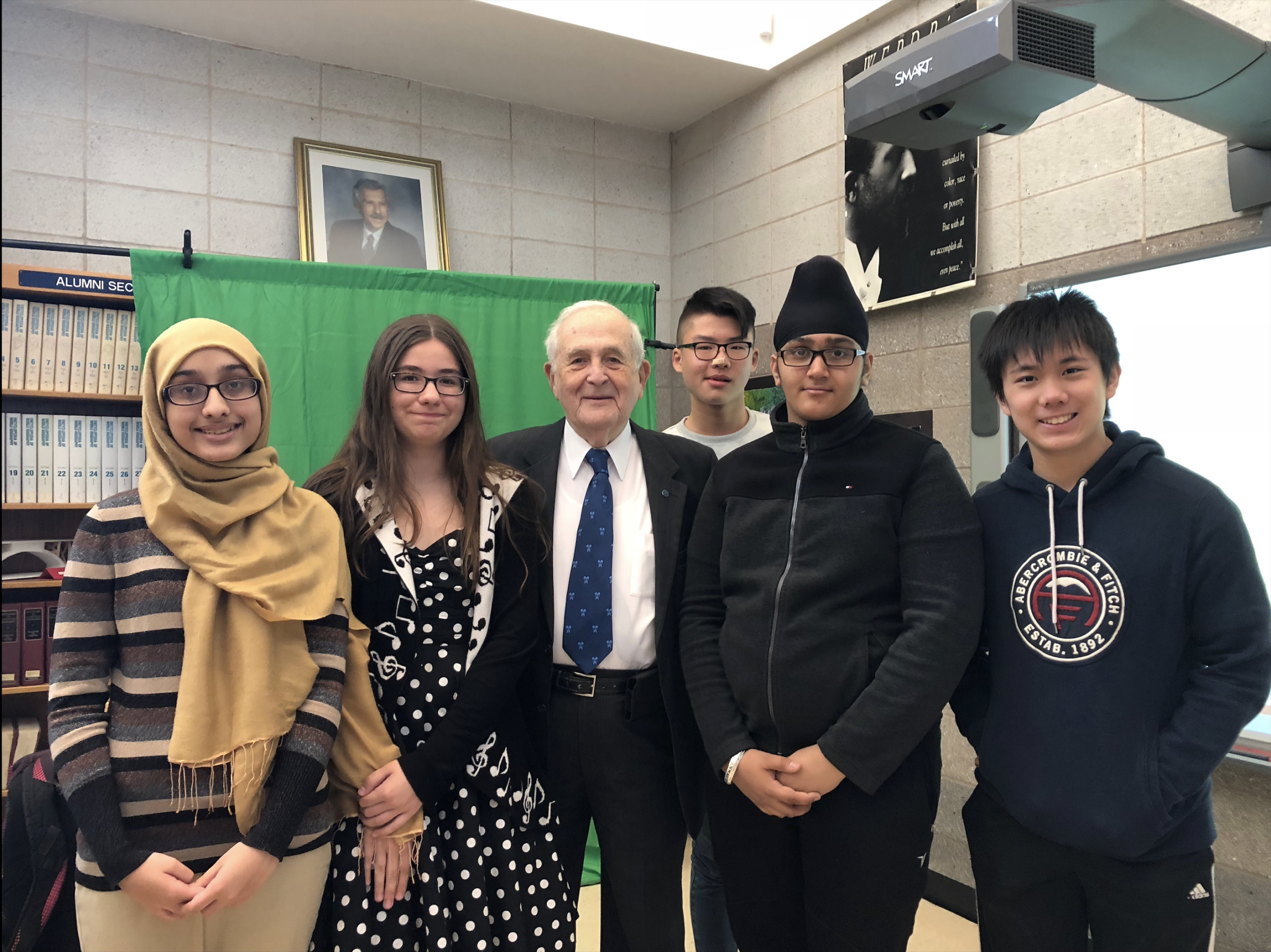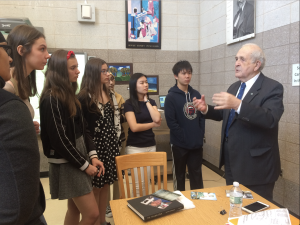
In the past week, students from English teacher Katherine Yan’s sophomore classes had the opportunity to attend presentations in which guest speaker Karl Schapiro recounted his experiences as a Holocaust survivor. Ms. Yan’s students had just finished reading Night by Elie Wiesel, which chronicles Wiesel’s life in concentration camps during the Holocaust and are currently studying modern-day genocides that are occurring in the world. The purpose of having students attend Mr. Schapiro’s presentations was to add to their understanding of the Holocaust and the concept of genocide.
Mr. Schapiro’s story began in his home country of Poland at the young age of nine to ten years old. “He talked about [how] he was in hiding during the Holocaust in a Polish farmer’s barn with 17 other people,” recalled sophomore Rahme Shahed. “They stayed under the haystacks for one and a half years with barely any food or water [and] they couldn’t shower.” Mr. Schapiro remained at the barn for 18 months until he was finally able to escape with his family to New York at the age of 14.
Upon arrival, Mr. Schapiro decided to put his past behind him and start afresh in his new home. He attended Brooklyn Technical High School and later worked as Director of Campus Facilities at Queens College.
Mr. Schapiro pointed out in his presentations that the number of Holocaust survivors is decreasing as the years go by. “We are going from lived memory to historical memory, so it’s important for Holocaust survivors to share their stories while they still can,” expressed Ms. Yan. “I know our students learn facts and statistics about World War II and the Holocaust, and I wanted them to hear a personal account from someone who experienced it. I thought that this would help humanize the victims.”
Part of Mr. Schapiro’s efforts to convey his story involves conjuring moving images of his experiences. “He told the class that while hiding from the Nazis … a baby he was with started crying so the mother covered the baby’s face with clothing,” stated Ms. Yan. “The baby suffocated and died. Hearing these stories of innocent children suffering was heartbreaking and disturbing.”
Mr. Schapiro’s account especially moved history teacher Aliza Sherman, who could relate to him due to her own personal circumstances. “My great-great-grandmother and three of her children were killed in the Holocaust; they are buried in a mass grave outside of Tarnow, Poland. They are among the six million Jews who were killed during the Holocaust,” she explained. “I love teaching history, but the Holocaust is a difficult subject for me to teach about because it is so personal to me, and painful.”
While working at Queens College, Mr. Schapiro was inspired to open up about the horrors of the Holocaust when he encountered a person who contended that the Holocaust did not actually occur. Since then, Mr. Schapiro has been sharing his experiences in order to illustrate the mayhem of the Holocaust and verify that it took place. Sophomore Jasmine Sahai commented, “When you hear about the Holocaust and the devastation it caused, it’s very hard to believe, but hearing a personal story being told in front of you from a survivor supports the fact that the Holocaust did happen.”
Overall, the presentations provided empowering takeaways despite the agonizing aspects of Mr. Schapiro’s experiences. Jasmine was touched by all the achievements he was able to accomplish since he came to the U.S. She commented, “He did not let his [past] experiences prevent him from moving on his life. These adversities pushed him to become successful. He focused on his work to help achieve his goals and [as] a result, he designed ships for the navy and was the manager for the construction of many buildings on the Queens College campus.”
Mrs. Sherman also found Mr. Schapiro’s presentation to be enlightening and said, “I appreciated the larger lesson that Mr. Schapiro was trying to teach our students: that they need to stand up for all of the victims of genocide, then and now.”





























